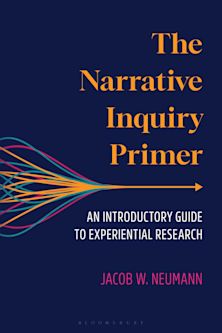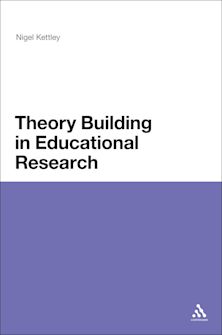- Home
- ACADEMIC
- Education
- Research Methods in Education
- Challenging the Qualitative-Quantitative Divide
Challenging the Qualitative-Quantitative Divide
Explorations in Case-focused Causal Analysis
Challenging the Qualitative-Quantitative Divide
Explorations in Case-focused Causal Analysis
You must sign in to add this item to your wishlist. Please sign in or create an account
Description
This book challenges the divide between qualitative and quantitative approaches that is now institutionalized within social science. Rather than suggesting the 'mixing' of methods, Challenging the Qualitative-Quantitative Divide provides a thorough interrogation of the arguments and practices characteristic of both sides of the divide, focusing on how well they address the common problems that all social research faces, particularly as regards causal analysis. The authors identify some fundamental weaknesses in both quantitative and qualitative approaches, and explore whether case-focused analysis - for instance, in the form of Qualitative Comparative Analysis, Analytic Induction, Grounded Theorising, or Cluster Analysis - can bridge the gap between the two sides.
Table of Contents
Part I: Problems with Quantitative and Qualitative Research
1. What's Wrong with Quantitative Research?
2. Quantitative Research on Meritocracy: The Problem of Inference from Outcomes to Opportunities
3. Qualitative Causal Analysis: Grounded Theorising and the Qualitative Survey
4. Qualitative Research and the Fallacies of Composition and Division: The Case of Ethnic Inequalities in Educational Achievement
Part II: Exploring Case-Focused Approaches to Causal Analysis
5. Set Theoretic versus Correlational Methods: the Case of Ability and Educational Achievement
6. Creating Typologies: Comparing Fuzzy Qualitative Comparative Analysis with Fuzzy Cluster Analysis
7. Analytic Induction versus Qualitative Comparative Analysis
Conclusion
References
Index
Product details
| Published | 08 Mar 2012 |
|---|---|
| Format | Ebook (Epub & Mobi) |
| Edition | 1st |
| Extent | 288 |
| ISBN | 9781441142207 |
| Imprint | Continuum |
| Series | Continuum Research Methods |
| Publisher | Bloomsbury Publishing |
About the contributors
Reviews
-
Highly Commended – Society for Educational Studies Annual Book Prize 2013
The Society for Educational Studies
-
This book does three important things. It provides a useful account of how the qualitative-quantitative divide in research methods arose and became entrenched, it sets out the various reasons why we need to move beyond this divide, and it offers a vision and a demonstration of how this can be done using an approach that combines a focus on cases with the search for the causes of the social phenomena under investigation. It combines philosophical discussion with empirical illustration in an accessible way that will make readers reconsider their ideas about how to deal with depth and breadth in social research.
Graham Crow, Deputy Director, ESRC National Centre for Research Methods and Professor of Sociology, University of Southampton, UK



































